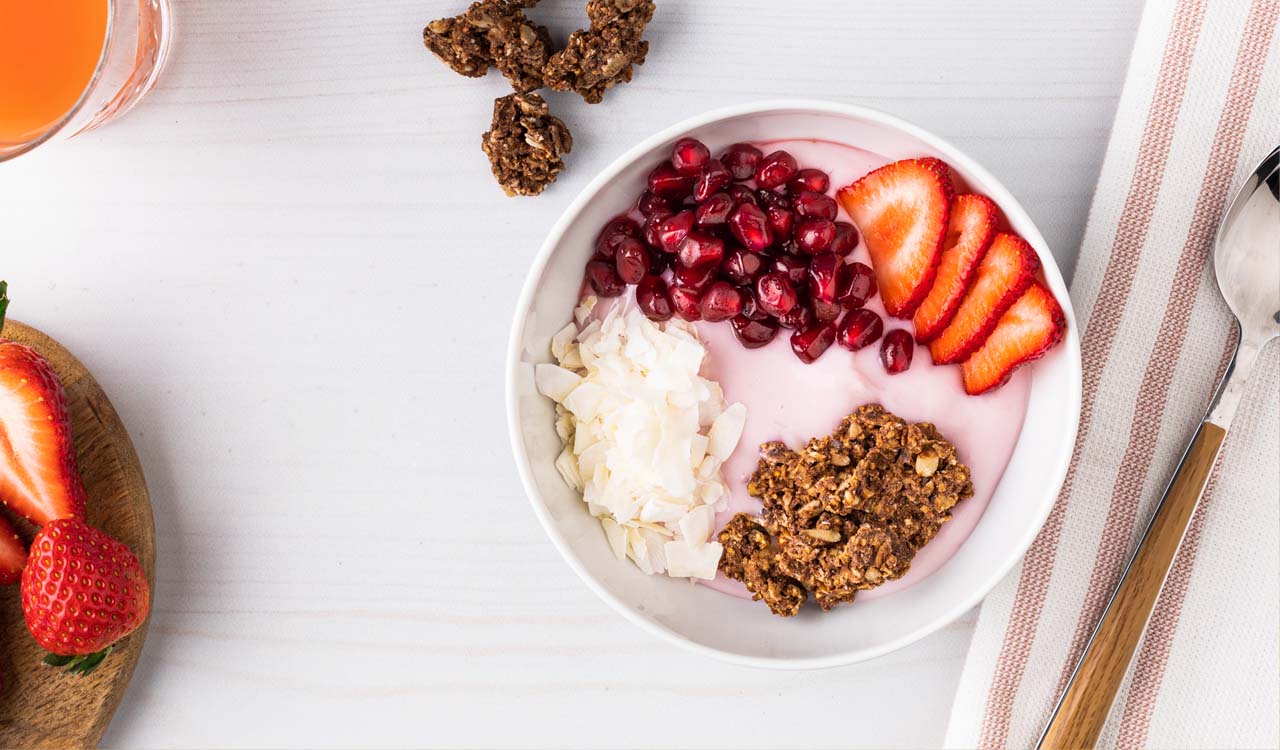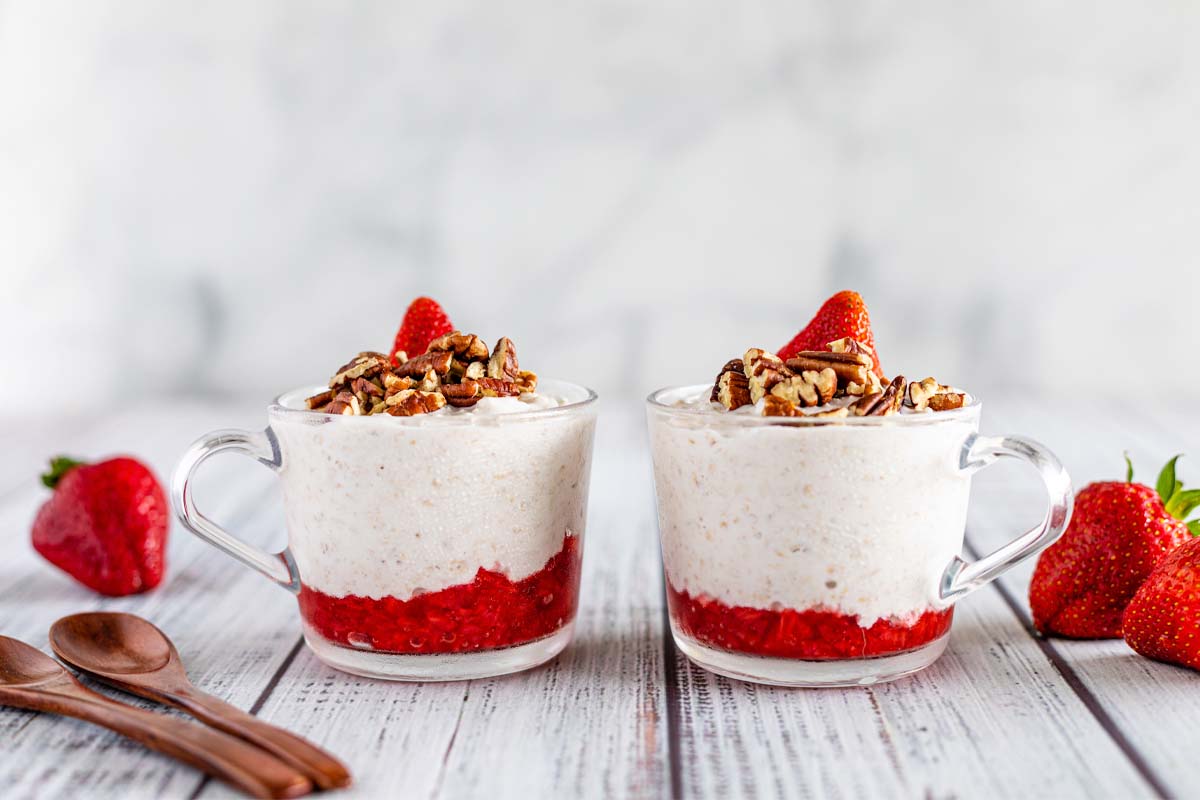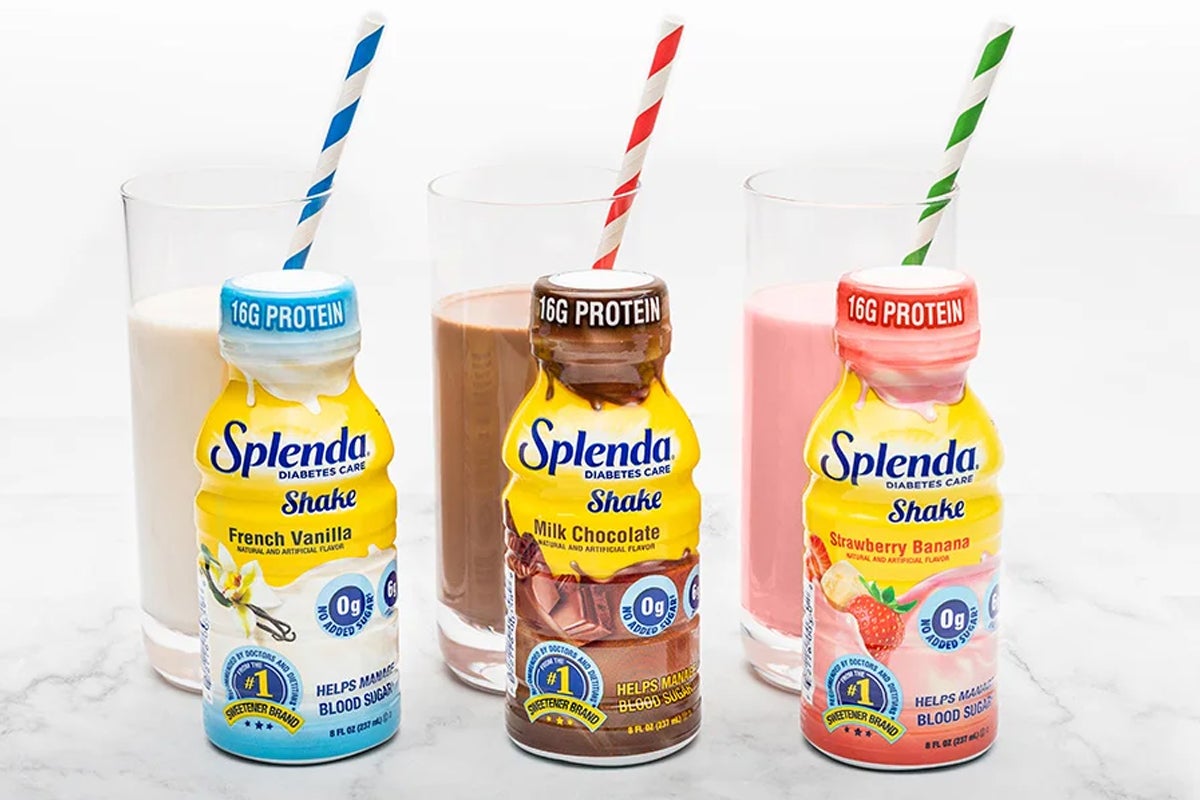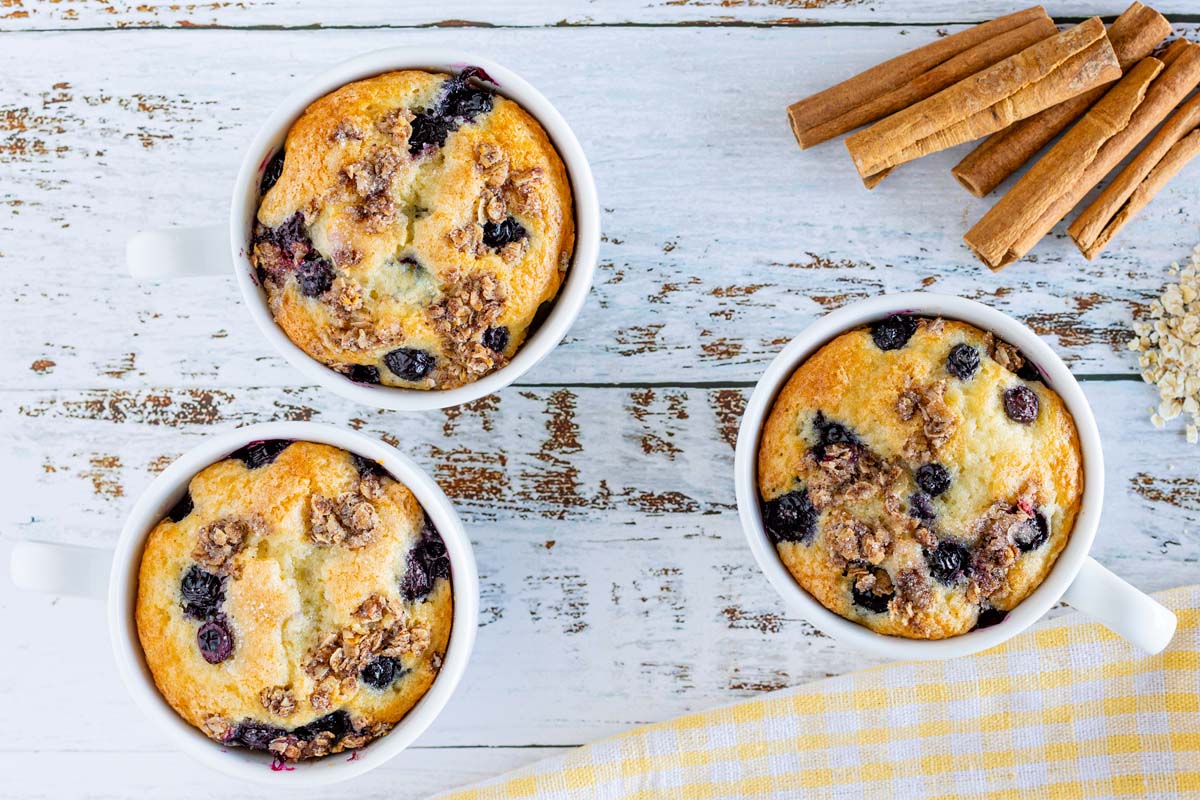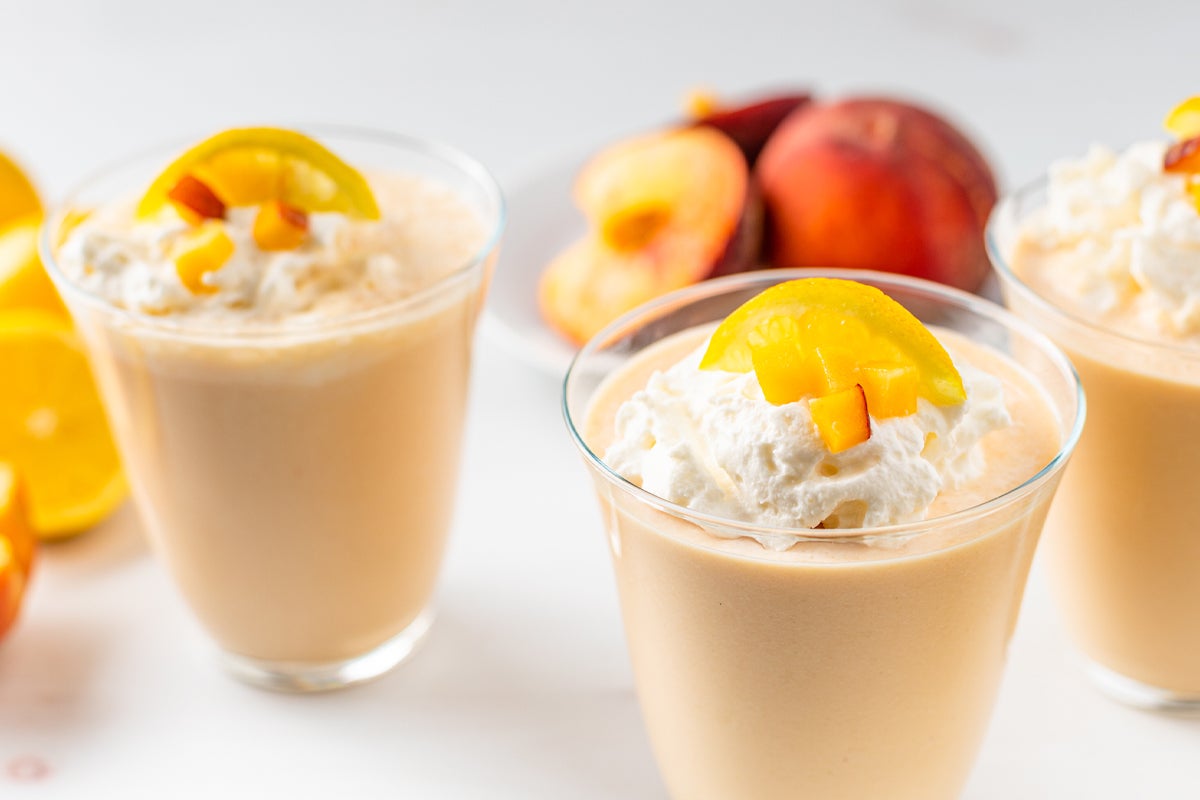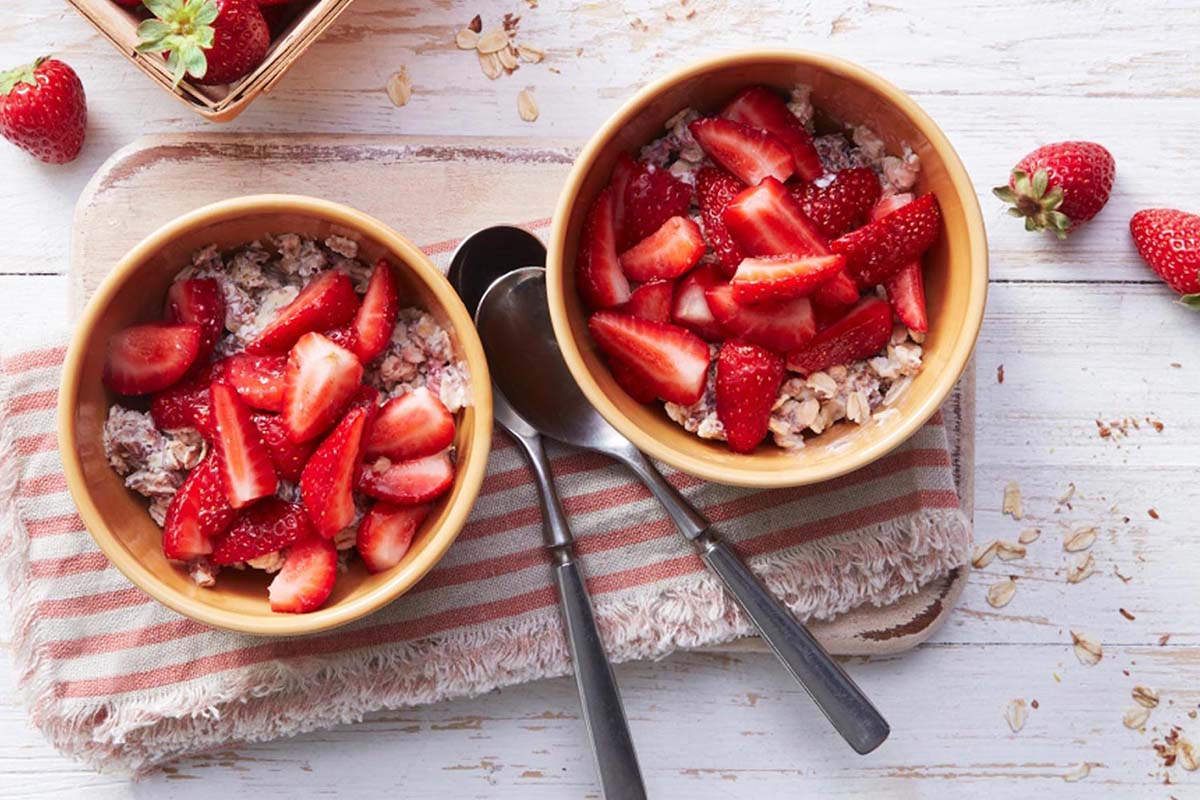Breakfast: Is It Really the Most Important Meal of the Day?
Discover the 5 benefits of breakfast! Plus get some great breakfast ideas.
February 21, 2022
You’ve likely been told at some point in your life that breakfast is the most important meal of the day. You may have even heard the old saying, “Breakfast like a king, lunch like a prince, and dinner like a pauper.” But is there any truth to that?
Breakfast is the most frequently skipped meal of the day,1 and it gets skipped for a lot of reasons: (1) lack of hunger upon waking up; (2) not enough time to make it; (3) don’t like breakfast foods; (4) want to cut calories to lose weight; (5) too much effort to make. Whatever the reason, skipping breakfast means skipping out on all the benefits this meal has to offer.
Here are 5 benefits of breakfast:
#1: Boosts your energy
Many people forget the literal meaning of the word breakfast, which is to break your fast. After you’ve been asleep for seven or so hours, it’s time to refuel and get that energy boost! Make sure to eat a meal that contains a blend of carbohydrate, protein, and fat to give your brain and muscles everything they need to get going.
#2: Provides essential nutrients
A recent study showed that skipping meals certainly does help people cut calories, but it also lowers the quality of a person’s diet.2 This was found especially true for breakfast. People who skip breakfast miss out on fruit, whole grains, and dairy, three food groups that are less commonly eaten later in the day and provide essential nutrients, like vitamin C, B vitamins, vitamin D, and calcium.
#3: Helps control blood sugar levels
A recent clinical trial showed that when people with or without diabetes skipped breakfast, their blood sugar levels were higher compared to the days they did not skip breakfast.3 Additionally, if a person with diabetes on certain glucose-lowering medications skips breakfast, it can lead to a potentially dangerous low blood sugar.
#4: Helps manage weight
Many people think that skipping meals leads to weight loss. Ironically, research has shown that skipping meals, specifically breakfast, can lead to weight GAIN.4 Of course, the quality of your breakfast meal still matters—eating a breakfast high in calories and added sugars certainly won’t help with weight management.
#5: Improves mental health
Most research showing that breakfast improves mental health and learning has been done in children and teenagers,5 but this does not mean adults are out of the picture! While most of us are not full-time students anymore, we are always learning and can benefit from all that a healthy breakfast meal has to offer.
Here are 5 healthy & delicious breakfast ideas:
#1: Overnight oats
Overnight oats are a way to make oatmeal without the cooking! Instead of using the stovetop or microwave, you soak raw oats in your choice of milk with add-ins, like fruit, nut butters, or seeds and then refrigerate the mixture overnight. Typically, people will store the oats in mason jars. To save yourself time, prepare enough jars for every morning of the week. The overnight oats recipe ideas are endless—two examples are these Strawberry Shortcake Overnight Oats made with Splenda® Sweetener Packets and these Cinnamon Vanilla Overnight Oats made with a Splenda French Vanilla Diabetes Care Shake.
#2: Splenda Diabetes Care Shake
If you’re someone who never has enough time to make breakfast (even the make-ahead kind like overnight oats), Splenda Diabetes Care Shakes are the perfect breakfast option! They are a smooth and creamy meal replacement with no added sugar! An 8-ounce serving contains 15 grams of total carbohydrate (2.5-3.5 grams of net carbs), 16 grams of protein, 6 grams of fiber, and 9 grams of total fat, most of which is healthy fat. This unique nutrient combination delivers that morning energy boost and helps manage blood sugars, for someone with or without diabetes. Splenda Diabetes Care Shakes come in three delicious flavors: Milk Chocolate, French Vanilla, and Strawberry Banana. Learn more about Splenda Diabetes Care Shakes!
#3: Mug muffins & make-ahead muffins
Muffins can be a great breakfast option…but not always. The gigantic muffins you find at a coffeehouse or grocery store bakery can send your blood sugar through the roof and if eaten regularly, they can contribute to weight gain. The best muffins are those you make at home with healthy ingredients. Mug muffins are an easy option because you can prepare and cook them in the microwave in 5 minutes or less, like this Blueberry Mug Muffin made with Splenda Stevia Sweetener. Another option is to bake a batch of muffins like these Zucchini Bread Muffins made with Splenda Stevia Granulated Sweetener and freeze them. All you need to do in the morning is pull one from the freezer and microwave it! Pair your muffin with a protein source, like scrambled eggs or unsalted nuts to complete your meal.
#4: Smoothies & smoothie bowls
For those who aren’t too hungry upon waking up, something light like a smoothie or smoothie bowl would be a great option. Most people know what a smoothie is, but smoothie bowls are a newer trend. Think of them as denser smoothies that you eat with a spoon and can top with things like nuts, seeds, and granola. Like overnight oats, smoothie and smoothie bowl recipe ideas are endless. This Rainbow Smoothie Bowl made with Splenda Stevia Sweetener is a colorful, nutritious way to start your morning. You can also make your own smoothie or smoothie bowl recipe using a Splenda Diabetes Care Shake like this Chocolate Peanut Butter Banana Smoothie.
#5: Homemade cereal
Many people gravitate toward ready-to-eat cereals and flavored instant oatmeal for breakfast because of how quick they are to make. Unfortunately, these cereals lack protein and can be loaded with added sugar! In fact, sweetened breakfast cereals are one of the top sources of sugar in our diet.6 You can make your own cereal in little time and in a much healthier way! For example, this Berry Almond Oatmeal and Strawberry Muesli can each be made in only 10 minutes. If you prefer ready-to-eat cereal, choose one that’s unsweetened and sweeten it with packets of your favorite Splenda® Sweetener. Add chia seeds of flaxseeds for a protein boost.
Conclusion
If you are someone who doesn’t care for breakfast foods, that’s okay! There’s no rule that you have to eat breakfast foods for breakfast. If you’re looking for other meal ideas, visit Splenda.com/recipes for inspiration!
Written by Holly Moran, MS, RDN, LD, CDCES and member of the Splenda Healthcare Team.
1 Pendergast, F. J., Livingstone, K. M., Worsley, A., & McNaughton, S. A. (2016). Correlates of meal skipping in young adults: a systematic review. The international journal of behavioral nutrition and physical activity, 13(1), 125. 2 Zeballos, E., & Todd, J. E. (2020). The effects of skipping a meal on daily energy intake and diet quality. Public health nutrition, 23(18), 3346–3355. 3 Jakubowicz, D., Wainstein, J., Landau, Z., Raz, I., Ahren, B., Chapnik, N., Ganz, T., Menaged, M., Barnea, M., Bar-Dayan, Y., & Froy, O. (2017). Influences of Breakfast on Clock Gene Expression and Postprandial Glycemia in Healthy Individuals and Individuals With Diabetes: A Randomized Clinical Trial. Diabetes care, 40(11), 1573–1579. 4 Ma, X., Chen, Q., Pu, Y., Guo, M., Jiang, Z., Huang, W., Long, Y., & Xu, Y. (2020). Skipping breakfast is associated with overweight and obesity: A systematic review and meta-analysis. Obesity research & clinical practice, 14(1), 1–8. 5 Pengpid, S., & Peltzer, K. (2020). Skipping Breakfast and Its Association with Health Risk Behaviour and Mental Health Among University Students in 28 Countries. Diabetes, metabolic syndrome and obesity: Targets and therapy, 13, 2889–2897. 6 U.S. Department of Agriculture and U.S. Department of Health and Human Services. Dietary Guidelines for Americans, 2020-2025. 9th Edition. December 2020.

